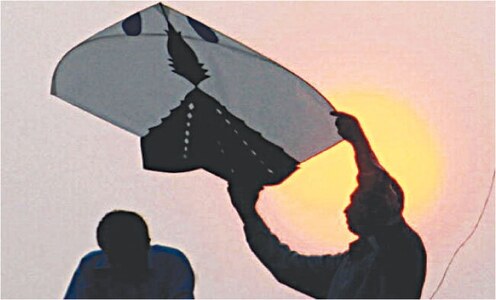ISLAMABAD: Pakistan’s maiden lunar satellite iCube-Qamar has transmitted the first images from orbit after successfully completing three rounds of the moon.
The images were released by the Space and Upper Atmosphere Research Commission (Suparco) on Friday. The data provided by the cube satellite (CubeSat) was delivered by China to Pakistan in Beijing, deepening lunar exploration cooperation between the two countries.
The satellite has completed three lunar orbits after being launched aboard China’s Chang’e-6 spacecraft from Hainan on May 3.
The Pakistan Institute of Space Technology (IST) — which launched the cube satellite — said iCube-Q was successfully deployed in the moon’s orbit at 1.14pm on May 8 from Chang’e-6.
Data sent by iCube-Qamar handed over to envoy in Beijing
CubeSats are a class of small satellites used by academic institutes for experimental and research purposes in low earth orbits, generally with an altitude of less than 1,000km. However, these satellites are now finding many applications in higher orbits and deep space missions.
Zhang Kejian, head of the China National Space Administration (CNSA), handed the data carrier over to Pakistani Ambassador Khalil Hashmi at a ceremony held in Beijing. They together unveiled the first image taken by the cube satellite.
The ceremony was presided over by CNSA Chief Engineer Li Guoping. Representatives from the Department of International Cooperation of CNSA, Lunar Exploration and Space Engineering Centre, National Astronomical Observatories of Chinese Academy of Sciences, Shanghai Jiaotong University, Suparco and Asia-Pacific Space Cooperation Organisation (APSCO) attended the gathering.
At the ceremony, the Lunar Exploration and Space Engineering Centre made a report on the mission of Chang’e-6 as the overall project.
The IST made a report on the development of the payload and international cooperation, while Shanghai Jiaotong University reported on the cooperative development of the payload as the Chinese responsible unit.
The opportunity to release a CubeSat in lunar orbit from Chang’e-6 mission was offered by the CNSA through the APSCO to its member states.
After a thorough evaluation, Pakistan’s proposal was accepted out of all APSCO member states. The design, development and qualification of iCube-Q was led by faculty members and students of the IST in collaboration with China’s Shanghai Jiao Tong University and support from Suparco.
ICube-Q carried two cameras as payload for imaging lunar surface and earth/moon images from orbit, besides having 3-axis altitude control for desired orientation, onboard computer, thermal control, telemetry and tele-command and payload data communication modules for connecting through deep space network.
Chang’e-6 rocket took five earth days to reach moon orbit. ICube-Q was deployed on May 08 in a carefully selected 12-hour elliptical orbit that allowed imaging of the desired lunar surfaces.
Published in Dawn, May 11th, 2024



































